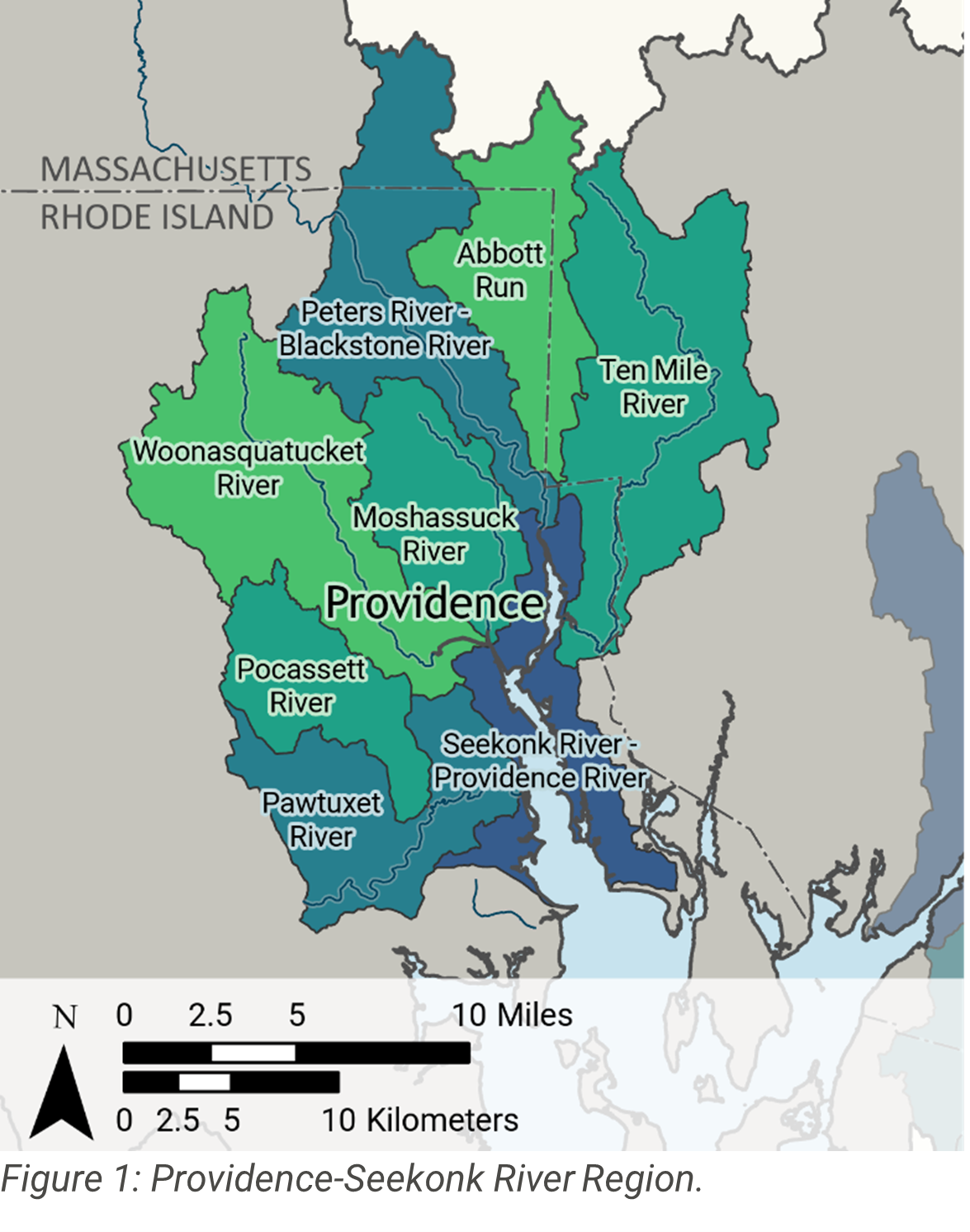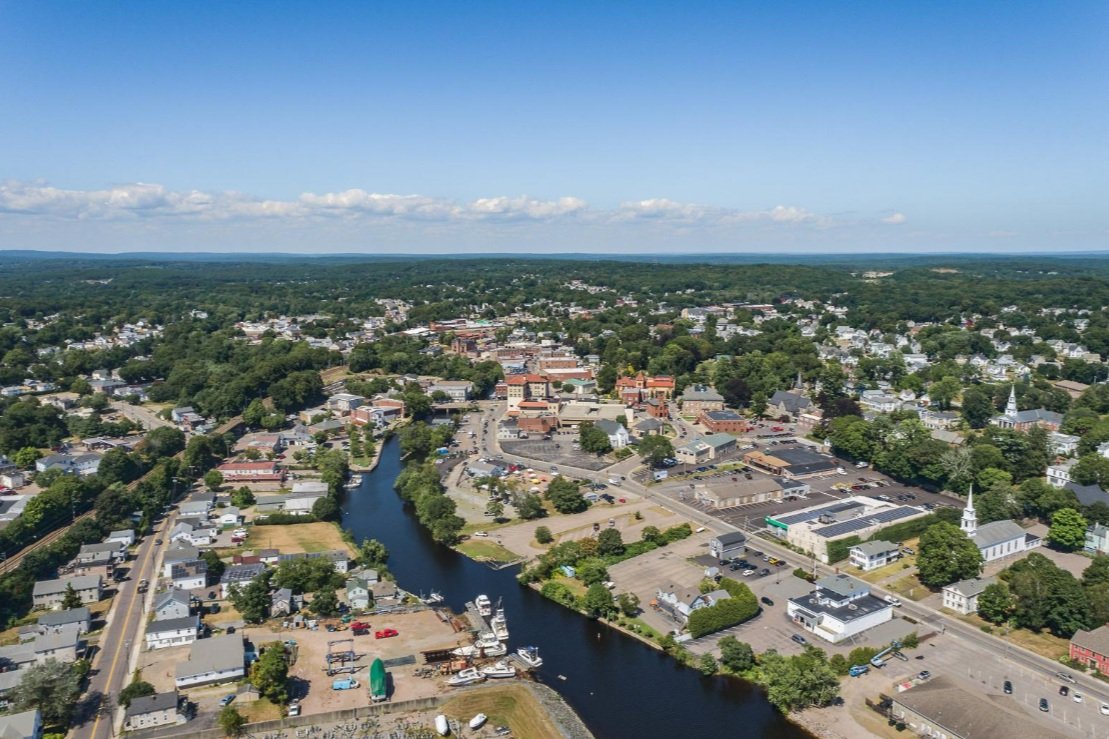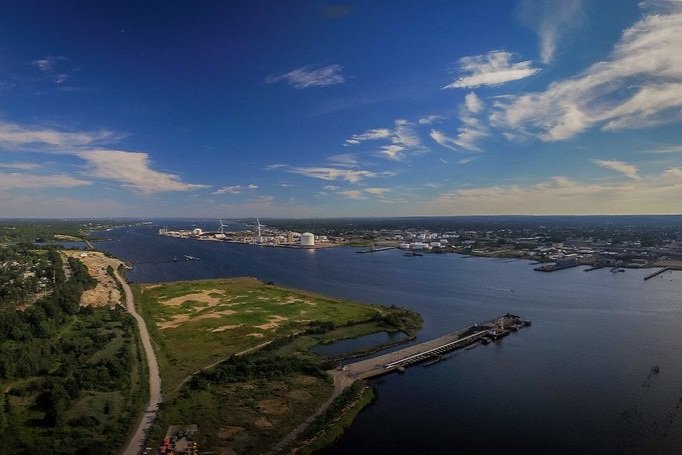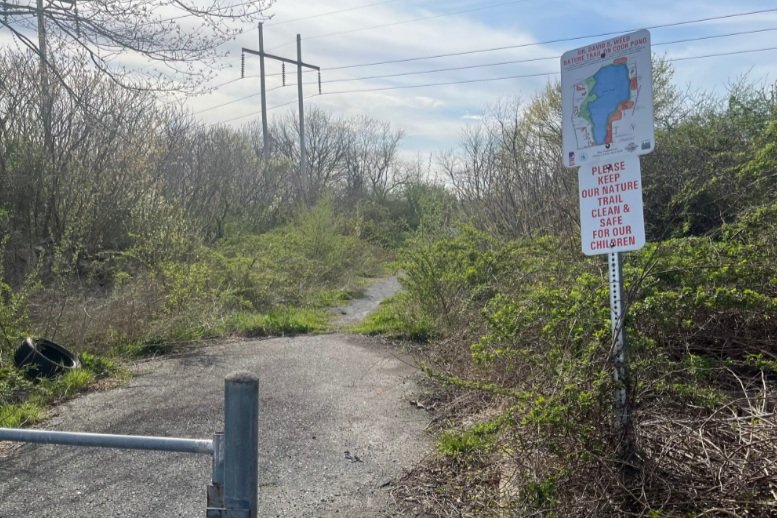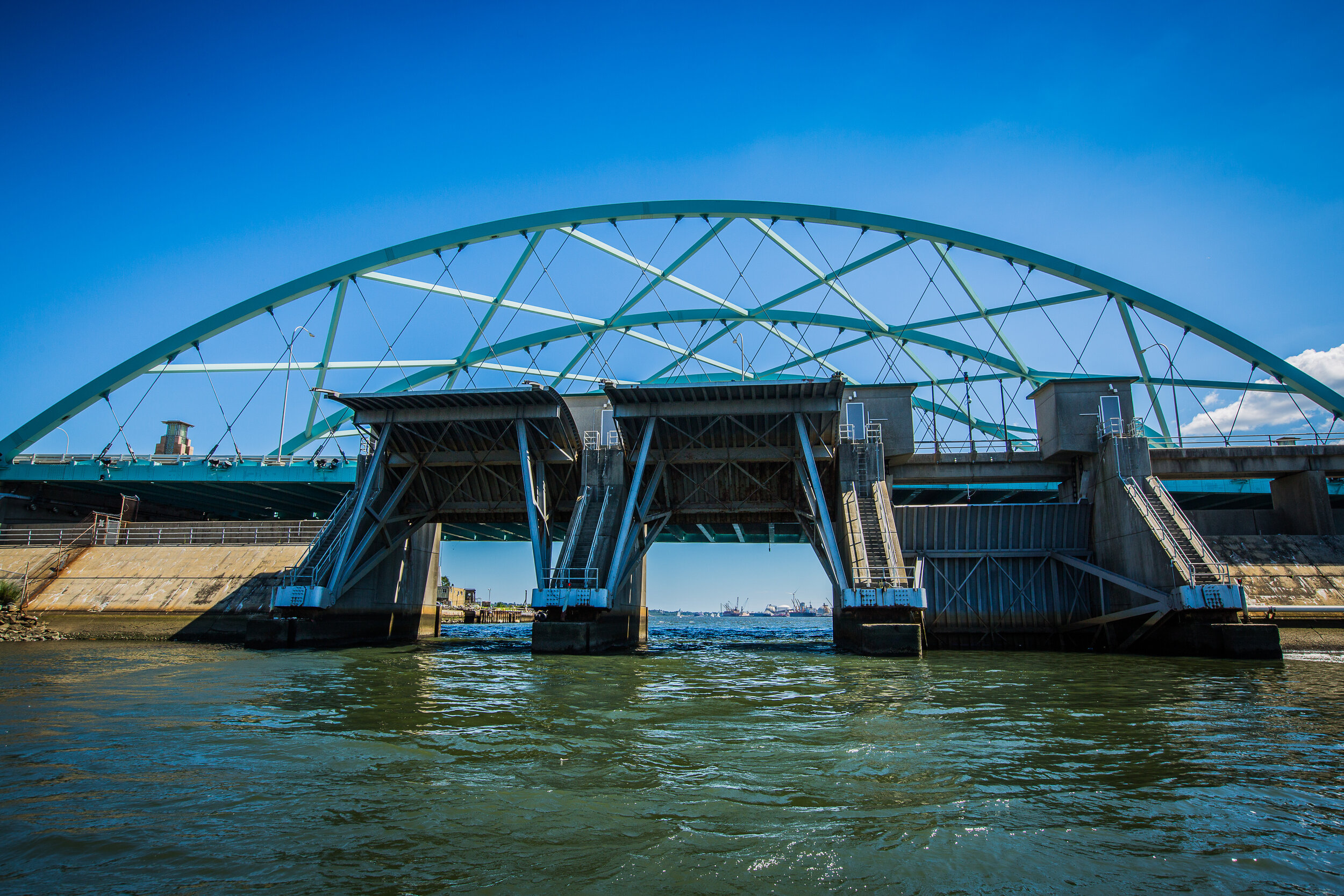
Projects We Fund
o
NBEP Funding Opportunities
Funding Opportunity: Synthesis of Secondary Data to Describe the Social, Economic, and/or Environmental Condition of the Providence-Seekonk River Region
The Narragansett Bay Estuary Program (NBEP), through its host, Roger Williams University (RWU), is issuing this RFP for synthesis of secondary data to describe the social, economic, and/or environmental condition of the Providence-Seekonk River Region. Federal funding is provided under the NBEP. Projects funded via this request will advance implementation of NBEP’s mission and its Comprehensive Conservation and Management Plan (CCMP) and be responsive to its Research Plan. The specific purpose of this opportunity is to fund data synthesis describing the environmental and social conditions of the Providence-Seekonk River region.
Approximately $75,000 is available. All project leads are required to schedule a pre-proposal consultation before submitting a proposal. All pre-proposal consultations must be completed by February 9, 2026. Proposals are due February 16, 2026 and award notifications are expected by April 1, 2026.
To be notified about future opportunities, sign up for our email list and click the “NBEP Funding Opportunities” checkbox in the Topics section of the form.
Since 2020, the Narragansett Bay Estuary Program has funded more than twenty projects to advance green infrastructure, habitat restoration, research, outreach, and capacity-building in the region. NBEP specializes in supporting often under-funded pre-construction project steps, including stakeholder engagement, project selection, design, planning, and permitting.
o
Recent Awards
Green Infrastructure Projects
-
The Blackstone Watershed Collaborative is bringing together decision-makers to further implementation of nature-based solutions to stormwater issues in the Blackstone River watershed.
-
The Providence Stormwater Innovation Center is monitoring the effectiveness of green infrastructure projects in Roger Williams Park and across Providence.
-
The Town of Barrington, Rhode Island is developing a storm drainage geodatabase to conduct a system-wide assessment of catchment areas and prioritize ineffective catchments for future upgrades.
-
The Town of Bristol, Rhode Island is conducting sub-watershed studies and developing concept-level plans for green infrastructure projects in the Sowams/Annawamscutt neighborhood to reduce flooding and improve stormwater quality.
-
The City of East Providence and Save the Bay will develop plans to treat stormwater runoff to the Runnins River, which is impaired for bacteria.
-
Groundwork Rhode Island and partners are developing a shovel-ready design for green infrastructure and traffic calming around York Pond at the south end of Blackstone Boulevard in Providence.
-
The Narragansett Bay National Estuarine Research Reserve will complete engineered plans and permit applications for green infrastructure practices to treat stormwater runoff from its headquarters on Prudence Island.
-
The Town of South Kingstown, Rhode Island will complete final design and permitting for ten priority stormwater retrofits around Green Hill Pond, which is impaired for fecal coliform bacteria.
-
The Southern Rhode Island Conservation District and the Town of Westerly completed a conceptual Stormwater Master Plan for nature-based design and stormwater retrofits along the Pawcatuck River in downtown Westerly. Visit the project StoryMap and read the final project report.
-
The Woonasquatucket River Watershed Council is developing initial conceptual plans for green infrastructure to treat stormwater runoff from significant impervious cover on Salmon Street that runs to the Woonasquatucket River and Greenway in Providence.
-
Award to the Audubon Society of Rhode Island Stormwater Innovation Center to plan retrofits for four green stormwater infrastructure BMPs in Roger Williams Park, Providence, RI.
Habitat Restoration and Public Access Projects
-
Succotash Marsh, a 182-acre salt-marsh system located within Potters and Point Judith Ponds in South Kingstown, Rhode Island, provides diverse habitats that support a diverse assemblage of birds, including salt marsh sparrows, as well as commercial aquaculture and recreational opportunities. Sea-level rise threatens Succotash Marsh by subjecting it to more frequent flooding, and surrounding developments prevent the marsh from migrating upland. This project, led by the Narragansett Bay Estuarine Research Reserve, will complete the planning and design phases of a sediment placement project to improve the resilience of Succotash Marsh and establish a monitoring plan that includes pre-restoration monitoring at both the project site and a control site.
-
The Blackstone River flows through Massachusetts and Rhode Island mill towns with histories of heavy industry, beginning with the Main Street Dam in the City of Pawtucket at tide water and continuing upstream into the City of Worcester. Historic records indicate that prior to industrial development on the river and the construction of mill dams for water power, populations of diadromous fish including river herring, American shad, and American eel were abundant in the system. The vision of this project, more than 20 years in the making, is to restore fish passage across the four lower dams that impede passage on the lower Blackstone. This project has been called the most urban, the most complex, and the most desired fish passage project in New England.
The Narragansett Bay Estuary Program is proving funding to the Rhode Island Chapter of The Nature Conservancy to complete engineering and permitting level fish passage design for the Main Street and the Slater Mill dams and to begin to look at feasibility options for the third and fourth dams, Elizabeth Webbing and Valley Falls. Visit NBEP’s Lower Blackstone Fish Passage webpage for more information about this collaborative project.
NBEP is supporting several additional project partners to organize community action in support of river connectivity, fish passage, and public access. See these projects for more information: Blackstone River Commons (Rhode Island School of Design), Blackstone River Watershed Community Engagement (Blackstone River Watershed Council / Friends of the Blackstone) and Blackstone Collaborative Capacity Support (Blackstone Watershed Collaborative).
-
The Wood-Pawcatuck Watershed Association (WPWA) will develop a cold-water stream restoration plan to improve the water quality, continuity, and resiliency of impacted cold-water streams that feed the Wild & Scenic Wood-Pawcatuck River. Many of these streams were compromised during America’s industrialization by the construction of infrastructure needed to impound, constrict, and straighten streams for waterpower, water supply, and transportation. Today, the watershed is one of the largest contiguous natural areas along the northeast corridor between New York and Boston.
The WPWA will also undertake the design and permitting required to construct at least one project prioritized in the cold-water stream restoration plan.
-
2023 award to the Pawtuxet River Authority to create public access to Randall Pond in Cranston, RI.
-
2023 award to the City of Providence to create safe and meaningful waterfront access and improved environmental conditions at a CRMC-designated coastal right of way in the highly urbanized Port of Providence in South Providence, Rhode Island.
-
2023 award to the Rehoboth Land Trust (Rehoboth, MA) to identify a preferred set of alternatives and a conceptual design for implementation of an approach that will restore connectivity between the tributary and the Palmer River, enhance the resilience of the surrounding ecosystem, facilitate agricultural use, and encourage public enjoyment of the Mason Street Landing property and the Palmer River.
-
2023 award to the Rhode Island Department of Environmental Management (RIDEM) to develop construction-ready plans to restore floodplain habitat, create fishing and boating access to the Pawtuxet River, and provide perpetual public trailhead access to Pawtuxet Oxboes Park at the “Pawtuxet Depot” property in Cranston, Rhode Island.
-
2023 award to the Woonasquatucket River Watershed Council (WRWC) to advance the design of a 1/3-mile multi-use trail, a river overlook, disconnection of one-acre of impervious surface, and restoration of 200 linear feet of streambank and a one-acre buffer space at Sherman Field in Johnston, Rhode Island, as a continuation of the Woonasquatucket River Greenway.
Research Projects
-
Seaweeds are an important component of the Narragansett Bay ecosystem, yet they are poorly monitored and poorly understood. Dr. Wally Fulweiler, Boston University, will lead a project to standardize seaweed monitoring, build a centralized Narragansett Bay seaweeds database, and build a community of fishers and scientists working together to document and assess the Bay.
-
Dr. Dan Codiga assessed the water quality impacts of reductions in nitrogen inputs to Narragansett Bay. Read the peer-reviewed article based on this work.
-
Shining Sea Fisheries Consulting analyzed observations of ecological change made by Narragansett Bay fishermen for use in environmental monitoring and decision-making. Read the final project report.
Outreach Projects
-
Led by the Rhode Island School of Design, the Blackstone River Commons aims to acknowledge and celebrate the multiple histories of the Blackstone River and reclaim the Blackstone River as a commons that is part of our regional identity. NBEP funded pop-up community engagement events, innovative outreach materials, and a multi-day paddle trip of the full length of the river. Read an ecoRI News piece about the paddle.
-
The Blackstone River Watershed Council (BRWC) / Friends of the Blackstone is leading multiple deep community engagement efforts to amplify the public voice for river connectivity, fish passage, and public access on the Blackstone River.
On October 31, 2022, the Narragansett Indian Tribe hosted an intertribal event with the BRWC at Old Slater Mill to raise community awareness of the importance of achieving fish passage in the lower Blackstone River. Building upon the success of this partnership, BRWC again partnered with the Narragansett Tribe to bring educational opportunities about the river and indigenous culture to children at the Boys and Girls Clubs of Rhode Island in Woonsocket. Read news coverage of the event.
Capacity-Building Projects
-
Groundwork Southcoast (GWSC) is a Massachusetts nonprofit organization that develops equity-centered strategies to implement green infrastructure, transform communities, and positively impact people and the environment. GWSC has established a Resilience District - a defined area with disproportionate climate and public health impacts - in New Bedford, Massachusetts. With funding from NBEP and others, GWSC is developing a new Resilience District in Fall River, Massachusetts.
-
Old Colony Planning Council (OCPC), the regional planning agency for the greater Brockton and Plymouth areas of Southern Massachusetts, will develop six projects that improve water quality, restore habitat, improve quality of life, and develop capacity for action in the upper Taunton River watershed. The six projects in development include:
1) An inclusive planning process to develop a regional water plan for the upper Taunton River region;
2) Encourage nature-based solutions to climate change and stormwater issues;
3) Support for the Town of Avon in their Municipal Vulnerability Preparedness Action Grant application;
4) Submit an assessment grant application to the EPA for three brownfield sites;
5) Develop a Master Plan for D.W. Field Park in Brockton/Avon;
6) Develop an Open Space and Recreation Plan for the Town of Abington.
-
Save The Bay will leverage new and existing staff resources to expand the organization’s impact across the region by identifying, developing, and completing projects in partnership with outside entities. NBEP’s financial support will be used to fund new and existing staff, mileage, and necessary supplies. Projects include fish passage, river connectivity, water quality, wetland and floodplain restoration, dam removal, public access, land protection, salt marsh restoration, and culvert projects.
-
The Southeastern Regional Planning and Economic Development District (SRPEDD) Circuit Rider Initiative will enhance the ability of SRPEDD’s Environmental Planning department to augment municipal capacity to pursue activities that support a healthy and thriving Taunton River Watershed across the 27 communities that SRPEDD serves. NBEP funding will enable SREPDD’s existing staff of professional environmental planners to provide technical support to municipal boards, commissions and committees who are lacking sufficient in-house staff time and resources to adequately address the aspects of planning, zoning, stormwater, infrastructure, climate response, and community resilience that ultimately support the maintenance and enhancement of watershed health, water quality, and ecosystem integrity.
-
NBEP funding will support the Blackstone Watershed Collaborative to grow in effectiveness, reputation, scope, and ability to support partners in the region through continued implementation of the Blackstone River Watershed Needs Assessment Report.

